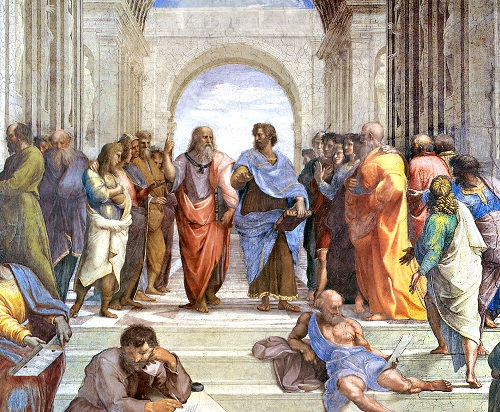Sortition Democracy: The True Democracy?
As explored in The Façade of Democracy article, democracy isn’t truly democratic and this has become even more evident today. The voices of…
As explored in The Façade of Democracy article, democracy isn’t truly democratic and this has become even more evident today. The voices of minorities are not heard when politicians are busy pleasing the majority groups whose votes will help them win the election. Elections are manipulated in the interest of the ruling party by the introduction of bills that will infringe on voters’ rights and gerrymandering. So what can be done to make democracy actually democratic?
Introducing sortition democracy, a type of democracy that has been dormant for thousands of years but has recently been revived in modern societies.

What is sortition democracy?
The word sortition stands for the action of selecting or determining something by the casting or drawing of lots. When put in the context of a government based on sortition democracy, it is when people serving as government officials be it members of parliament, senators or cabinet members are randomly selected. This means that anyone who is eligible has a chance of being selected to become a government official.
You might be thinking, that’s crazy! Essentially anyone and everyone can serve in the government and make decisions that will affect the whole country. What about your classmate who can’t tell the difference between fiscal and monetary policies? Or your superior who doesn’t even know who the Prime Minister is? What about people who don’t have citizenship? Surely if people like them become the government, the country is doomed.
Not necessarily, the people who can stand a chance of winning the ‘lottery’ will have to be eligible, meaning they would have to be older than a certain age (usually 18), be mentally and physically fit to carry out governmental duties, be a citizen of the country and so on.
Sortition can be carried out in a few ways too, either every eligible citizen has their name put in the pool for selection or only volunteers put their names in to be selected. Individuals who are selected can choose to reject the position. A team of experts will also be available, ready to guide the government to lead and make policies.
Has sortition democracy been implemented before?
Sortition democracy was the political system used in ancient Athens, also the birthplace of democracy. Athenians used a machine that would randomly select the names of volunteers who would then serve the Athens government made up of thousands of positions. Though only men could volunteer since women, children and slaves were not given full citizenship.
About 30,000 eligible Athenians could attend the ecclesia, a general assembly held every few months. Among them, 6000 people were allowed to address the nation, debate on policies or even talk about a public lawsuit. Since an assembly where 6000 people were trying to talk would be chaotic, a council of 500 people, the Boule, was given the responsibility to set the agenda and decide what would be addressed in the ecclesia. In addition to the already gigantic government, there were hundreds more jurors and magistrates who handled the legal matters.
All the positions mentioned above were filled by the random selection of Athenians. Though, elections still played a small part in Athens’s democracy. Among the government, positions that required expertise like Generals were filled by elections.

Sortition still happens today even though not on a federal level. For example the jury system in several countries like the US, where random US citizens are called in to decide whether to indict or acquit someone.
What are the advantages of sortition democracy?
Saving resources and money
Almost USD14 billion was spent on the 2020 US elections, and about $6.6 billion went to the presidential campaign. The rest were campaign funds for Senate and House races. This is a common phenomenon in democratic countries. Every time election season comes around, millions and billions are poured into campaigning. The money is raised from donations or out of the politician’s pocket and usually goes into advertising on various media platforms, renting venues for the campaigns, paying the campaign staff and so on. If elections were abolished, all this money could have been donated for a better cause, like ending poverty or hunger.

A better educated population
The main argument against sortition democracy is that the average Joe does not have the knowledge or expertise to lead a country. But evidence says otherwise. James Fishkin, a professor of communication and Director for the Centre of Deliberative Polling found that such processes stimulate education. When an individual is aware that one day, they might be called in to serve in the government and make decisions that would impact the whole country, they are more likely to educate themselves on such issues.
‘When citizens have the chance seriously to consider competing sides of an issue, they take the opportunity to become far more informed.’ — James Fishkin
No more politicians
Every time an election is about to happen, politicians begin their routine of making promises on how to improve the country, maybe they agree to raise taxes for the rich or to reduce carbon emissions. In the end most of these promises never come true. Like in Malaysia, the Pakatan Harapan government vowed to establish the Independent Police Complaints and Misconduct Commission (IPCMC), but it never was.
If there are no more politicians, there would be significantly less lobbying. Lobbying is where an individual or organisation seeks to influence a politician or public official on an issue, usually by the means of money. Lobbyists pay big money to politicians, helping them fund their campaigns and in return said politicians try to act in favour of the lobbyists. This can be seen in the US where the National Rifle Association (NRA) spent $1.6 million lobbying against a bill that would expand background checks. Oftentimes, lobbying only acts in the interest of a selected few, like the rich.

A government that is actually representative of the country
Even though a country claims to be democratic and the government is a representation of the country, it often is not. Take a look at the Parliament in Malaysia, a country where 49.3% of the people are women, yet only 33 out of the 222 members of Parliament are women. While Malaysia’s mean age is 30.3, politicians and government officials tend to be much older, some even passing the 70 year milestone. Even speaking from a social and financial standpoint, politicians tend to be rich and from the upper echelons of society. Not very representative of the country.
Did you know that of the 55 Prime Ministers in the UK, 20 were educated in Eton College, a prestigious school that has educated several royals including Prince William and Harry? The tuition costs up to £48,501 per year, way above the average salary of £29,600 and further emphasises that politicians are largely composed of upper class individuals.
Whereas if the government was selected by sortition, there would be people of all social backgrounds, not just the rich. There will be better gender representation, disabled people, racial minorities who tend to not run for elections, and even if they do, often lose. A government like this is more likely to act in the interests of the people instead of their own as they are the people.
How could sortition democracy be implemented?
Sortition doesn’t have to be implemented at a federal level from the get go as it is still a big change from democracy as we know it now. Here’s a few ways that sortition can be integrated into our society.
Experiment with sortition
Implementing sortition in schools and workplaces would be a good start to get the people warmed up towards the idea of random selection. Let’s look at student council elections, sortition could replace the usual campaigning and voting of the student body. Students are randomly selected to form the members of the student council, similar to government elections but on a much smaller scale.
Policy juries and citizens’ assemblies
Policy juries are a small group of randomly selected people who then aid policy makers in a non-partisan way. Citizens’ assemblies are similar to policy juries, a group of randomly selected citizens who deliberate on important issues. Both are forms of sortition democracy implemented on a smaller scale, but still relating to the government.
Several organisations have started advocating and forming policy juries and/or citizen assemblies, like the newDemocracy Foundation in Australia. These organisations aim that through experimentation via smaller groups, sortition can be further considered and implemented on a federal level.
Actually implementing sortition democracy
Now that the people have warmed up to the idea of sortition and it seems like a viable alternative to conventional democracy, how can it actually be implemented in the government?
It seems impossible that the entire country (and politicians) will welcome such a monumental change, one that would completely get rid of elections. So we can start small, such as a second chamber in the parliament where all the members of this chamber are selected via sortition.
There have also been petitions in France and Scotland for a citizen senate — where all the senators are selected at random and are given the tasks to approve or veto legislations produced by an elected legislature, and the senators will not be involved in drafting or amending said legislation. A citizen senate would mean that legislations that are passed are in the interest of the public as there is no ‘party line’ to adhere to.
After the implementation of a second chamber in the parliament or a citizen senate, the government may slowly transition into a fully sortition democratic government over the course of several years.
Closing thoughts
Sortition democracy seemed like a very extreme form of democracy, but it is one that would actually allow the citizens to lead the country. We as a society have been conditioned to accept that conventional democracy is the best political ideology, which made something like sortition sounds impossible. Maybe it is, or maybe it isn’t. The only way to find out is to try.
Sortition democracy isn’t perfect, but it is better.
[Written by: Sarah Chong]

